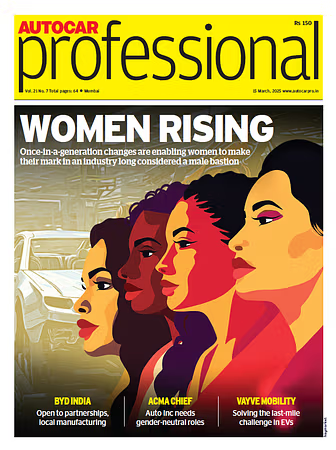'Will look at hybrids if there's strong customer demand': M&M's Anish Shah
"We view hybrids as an extension of ICE, it's a slightly different powertrain. And to the extent that it's required, we'll be ready with that," Shah said.
Mahindra & Mahindra is closely looking at the hybrid technology space and will be ready to introduce hybrid vehicles if there is a strong customer demand, according to the company's MD, Anish Shah, at the Q4 results.
However, government incentives for hybrid cars don't make sense, according to Shah. He noted that M&M will be ready to get into hybrids if the demand increases. "We view hybrids as an extension of ICE, it's a slightly different powertrain. And to the extent that it's required, we'll be ready with that. If there's a significant change in hybrid technology that causes it to be much more like an EV, then that's something we'll move into much faster."
"At this point, we feel good about our focus on EVs. We'll be ready for hybrids. We're looking at the hybrid technologies closely and we'll continue to act upon it," Shah said.
"I know there's been a lot of debate on hybrids but government incentives are typically to enable an industry to transition to a place that's better for the economy. Electric vehicles (EVs) have no emissions. They have got much lower fuel import because they don't use fuel," he says.
He added that governments around the world are providing incentives to electric vehicles to transition to the same. "That incentive will come down because at some point we're not going to need them anymore. In hybrids, there's no material change in emissions. Yes, there's some benefit from a fuel efficiency standpoint but that's still very marginal. And it's more expensive to build because it has got two powertrains which is also the reason why governments around the world have largely stopped providing any incentives for hybrids in the last 20 years," he said. "The question is, is an incentive really required for hybrids?"
Shah says that government incentives are typically meant for a temporary timeframe to enable better adoption of EVs. "I know there's been a lot of debate on hybrids but government incentives are typically to enable an industry to transition to a place that's better for the economy. Electric vehicles (EVs) have no emissions. They got much lower fuel import because they don't use fuel," he says.
This comes on the backdrop of Toyota's aggressive push in the hybrid segment with about 78% market share, whereas Suzuki Motor Corporation has also expressed an intent to bring a cost-effective hybrid car, and is hoping for the GST to be lowered on hybrid cars, to be able to leverage more volumes on affordable hybrid cars with much better mileage. In FY24, approximately 99,000 electric cars and 89,500 hybrid cars were sold in India, each powertrain accounting for about 2% of the total car sales.
RELATED ARTICLES
Hero MotoCorp Regains Momentum in March, Can it Reclaim Wholesale Crown from Honda?
Hero has shown strong recovery in its March 2025 dispatches after temporarily losing its market leadership to Honda Moto...
Trump's Latest Tariffs Don't Cover Auto and Auto Parts: ACMA
It said that these are already subject to 25% tariffs due to an earlier order, and are therefore not covered by Wednesda...
Maruti Suzuki Announces Price Hike Across Models
Rising input costs and regulatory changes force India's largest carmaker to increase prices by up to Rs 62,000, with sev...






 16 May 2024
16 May 2024
 6986 Views
6986 Views








 Sarthak Mahajan
Sarthak Mahajan

